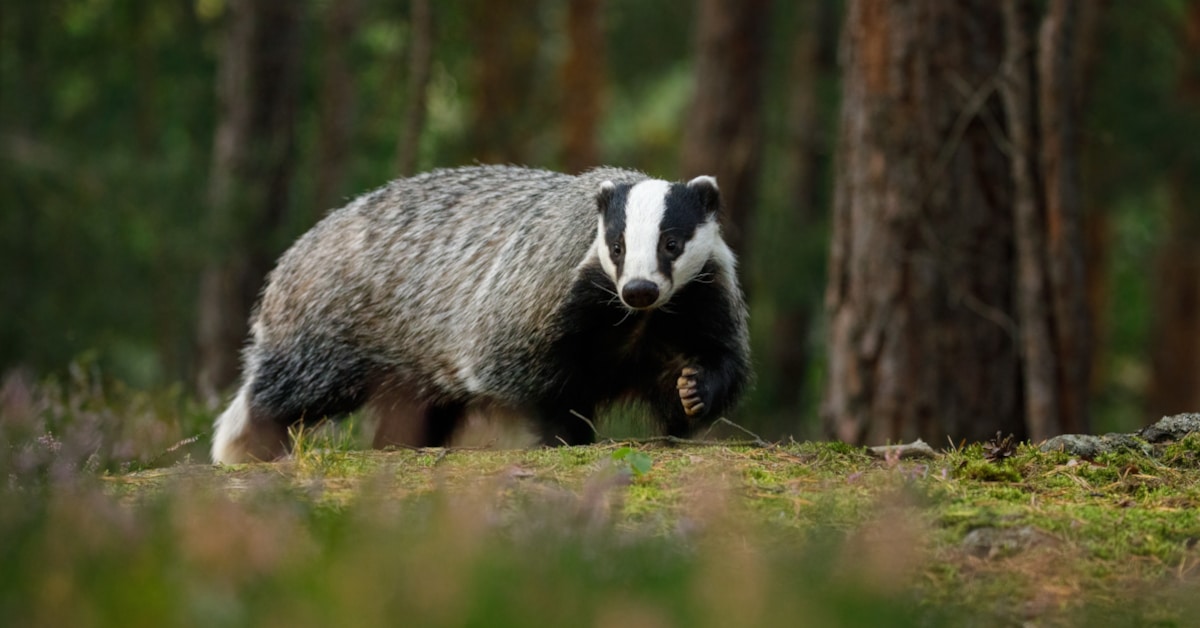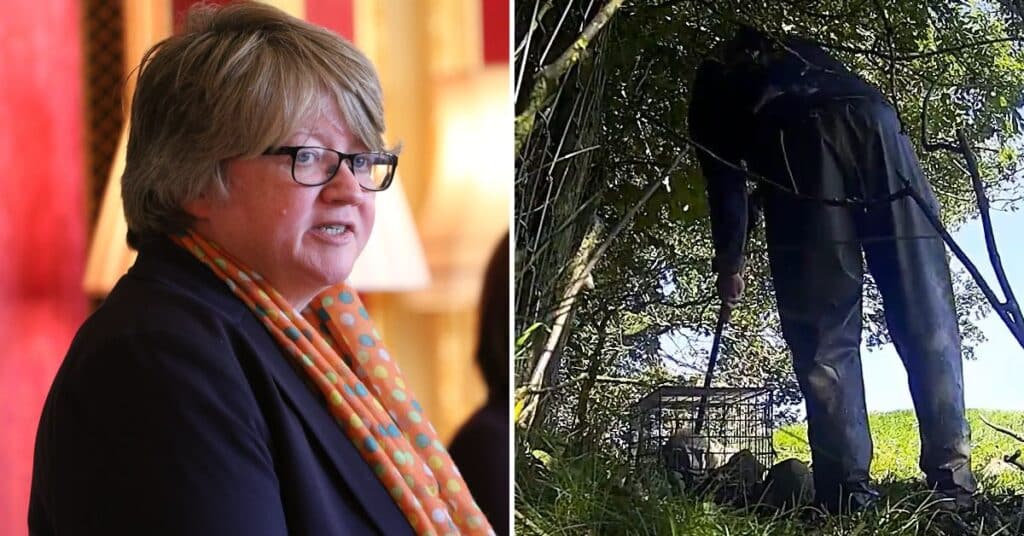Environment secretary Thérèse Coffey said that she won’t keep to “artificial deadlines” over ending the badger cull. And her words come just as plans were confirmed for tens of thousands more deaths at the hands of farmers.
At the opening of the Royal Cornwall Show, Coffey told the public that she believes there is “no fixed deadline” for the end of the badger cull. Cornwall Live reported on 8 June that she made the statement at a Country Land and Business Association (CLA) breakfast event on the show’s opening day.
When the government began its badger cull programme in 2013, it planned a 25-year strategy that would ‘eradicate’ bovine tuberculosis (bTB) by 2038. And in 2021, it announced that the intensive phase of culling finished at the end of 2022. At the time, environment secretary George Eustice said the government would accelerate “other elements” of the strategy including cattle and badger vaccinations.
However, Coffey’s words raise the prospect of an endless cull. According to Cornwall Live, she told people at the CLA breakfast that she knows some deadlines for the cull have been set out but that she’s “not doing that”. She then went on to tell the Western Morning News:
“I’m led by the evidence and the science, and to be quite candid I’m not keeping to an artificial deadline. I’m not saying that culling will necessarily happen everywhere.
“But the important thing to add is that we’ll try and do our best to eradicate this awful disease”
Badger cull and cattle slaughter
Her words came just as the government published its licences for 2023’s supplementary culls. As Protect the Wild previously reported, the Badger Trust estimated that this year’s round permits the murder of up to 29,000 badgers. As a result, the charity’s executive director Peter Hambly described the cull as the “most toxic wildlife management strategy in Britain’s contemporary history”.
Moreover, despite the cull having killed more than 210,000 badgers since it began, there are serious questions about its impact. An analysis of badger culling on bTB between 2009 and 2020, published in March 2022, showed that the mass killing of badgers has had no discernable effect on the disease’s spread. As a result, farmers have also continued killing tens of thousands of cows each year following positive bTB tests.

A study in northern Ireland, published in May, showed that badger-to-cow transmission was almost non-existent. Instead, the primary mechanism for bTB spread is from cow to cow. This confirmed what anti-cull campaigners had said from the outset, and provides a reason for the cull’s ongoing failure to reduce bTB’s incidence rate.
There are also massive failures in the culling system itself. For example, despite killing 33,267 badgers in 2022’s cull, Protect the Wild revealed that cull operators hadn’t sent a single body for bTB testing. That means the government doesn’t even know if any of those badgers actually had the disease or not. And undercover footage from Northamptonshire in 2022 showed that a dead badger disposal unit was failing to adhere to basic biosecurity measures.
‘We just have to keep going’
When the government announced an end to intensive culls in 2021, it also said it would place a hard limit on new supplementary cull licences of two years. That meant all cull licences under the existing system would run out by 2026. However, Coffey’s words suggest this is now under threat.
The environment secretary might have been attempting to gladhand farmers at the Royal Cornwall Show. After all, she had a botched appearance at the National Farmers’ Union conference in February. To this end, Cornwall Live said she also attacked rewilding and right-to-roam campaigns as well. However, she is still the head of Defra – and bases decisions on her personal and her party’s interests. That’s why she told the CLA breakfast:
“In my own family, my sister had another positive test and cull cows are going away from our farm already. It’s an appalling situation and we just have to keep going.”
But keeping going means ongoing badger persecution. It will bring Britain’s badgers to the edge of extinction – and maybe push them over into oblivion. Meanwhile, tens of thousands of cows continue dying. Until the government and farming industry admits that it’s not badgers that are the problem but farming itself, it seems the cull might never end.
Read Protect the Wild’s page on badger persecution and donate to help us keep reporting on these issues.
Featured image via Foreign and Commonwealth office/Wikimedia and Hunt Investigation Team

